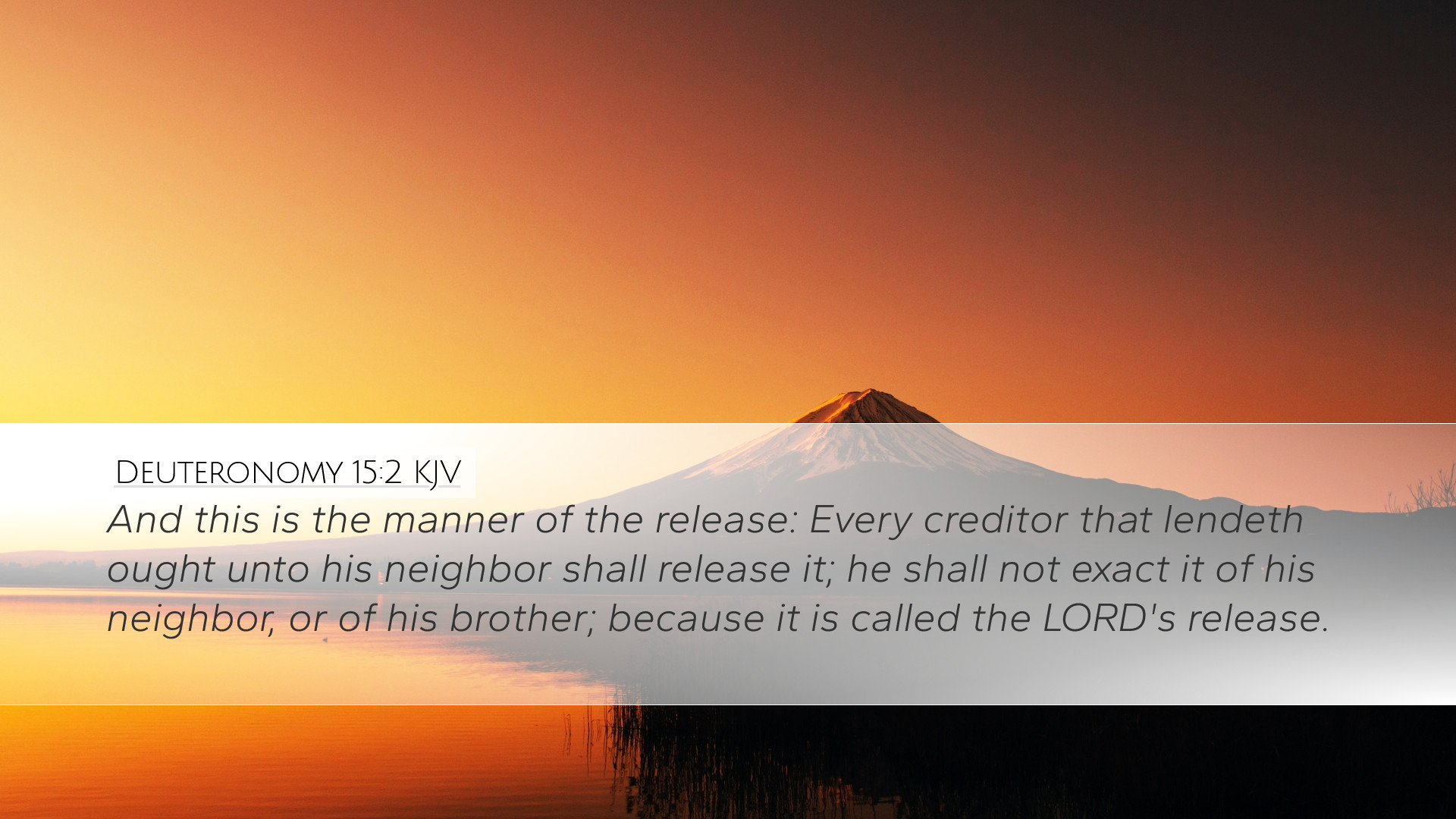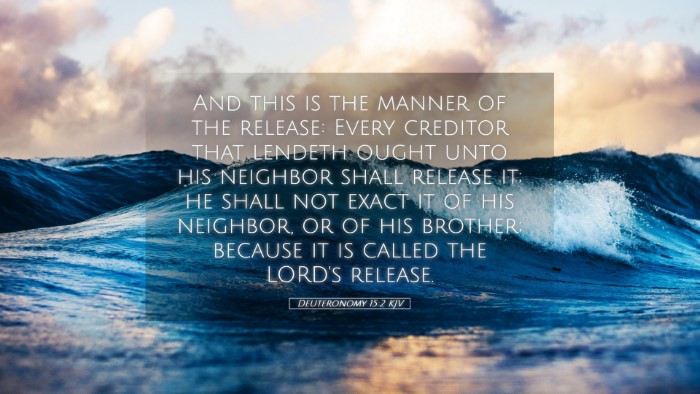Commentary on Deuteronomy 15:2
Bible Verse: Deuteronomy 15:2 - "And this is the manner of the release: Every creditor that lendeth ought unto his neighbor shall release it; he shall not exact it of his neighbor, or of his brother; because it is called the Lord's release."
Introduction
The command found in Deuteronomy 15:2 is a profound reflection of the principles of mercy, justice, and social responsibility within the framework of the Israelite covenant community. This verse establishes a practice of debt release that serves not only as a legal provision but also as a spiritual and ethical mandate that reflects God's own character of forgiveness and grace.
Insights from Public Domain Commentaries
1. The Context of Debt Release
Matthew Henry highlights the historical context of debt in ancient Israel, where economic hardship could lead individuals into servitude or unmanageable debts. The Provisions established in this verse serve to maintain communal harmony and prevent perpetual poverty.
2. The Theological Significance
- Albert Barnes notes the connection between this commandment and the nature of God's forgiveness. Just as Israel is called to forgive debts, so too does God forgive the sins of His people. The notion of “the Lord's release” serves as a reminder of God's merciful character.
- Adam Clarke adds that this practice foreshadows the greater spiritual truths found in the New Testament. The “release” can be seen as an analogy to the Gospel message, where Christ releases believers from the bondage of sin.
3. Practical Applications for Today
The implications of this verse extend beyond the ancient setting to contemporary issues of financial ethics and community support.
- Pastoral Approaches: Pastors are encouraged to remind congregants of the importance of showing mercy in financial dealings, reflecting the character of God in their interactions and promoting social justice.
- For Students and Theologians: The passage invites deep reflection on the nature of justice and mercy within Biblical theology and its practical implications in modern socioeconomic contexts.
4. Societal Implications
Both Henry and Barnes emphasize the societal implications of debt release. By periodically releasing debts, the Israelite community could prevent exploitation and ensure that the poor were not perpetually enslaved to their financial obligations.
- This command illustrates a divine concern for the well-being of all community members, particularly the most vulnerable.
- The concept of communal responsibility echoes throughout the Scriptures, urging society to care for the less fortunate.
5. Spiritual Renewal
Matthew Henry also notes that this release mirrors personal spiritual renewal. Just as people are released from their debts, they are also called to seek spiritual renewal and repentance.
- The annual release of debts is a chance for individuals to reset their spiritual lives, reflecting ultimate redemption through Christ.
- Clarke suggests that this yearly release can be seen as a celebration of God's continual grace and mercy in believers' lives.
Conclusion
Deuteronomy 15:2 unveils a multi-layered command that speaks to God's heart for justice, mercy, and interpersonal relationships among His people. It holds timeless principles that continue to challenge believers today to reflect Christ-like attitudes in their personal and corporate financial dealings. The call to release debts provides not just a historical legal avenue but a spiritual pathway to understand God's redemptive work among His people. The interplay of law and grace is beautifully evident in this command, making it a significant study for pastors, students, theologians, and scholars alike.


